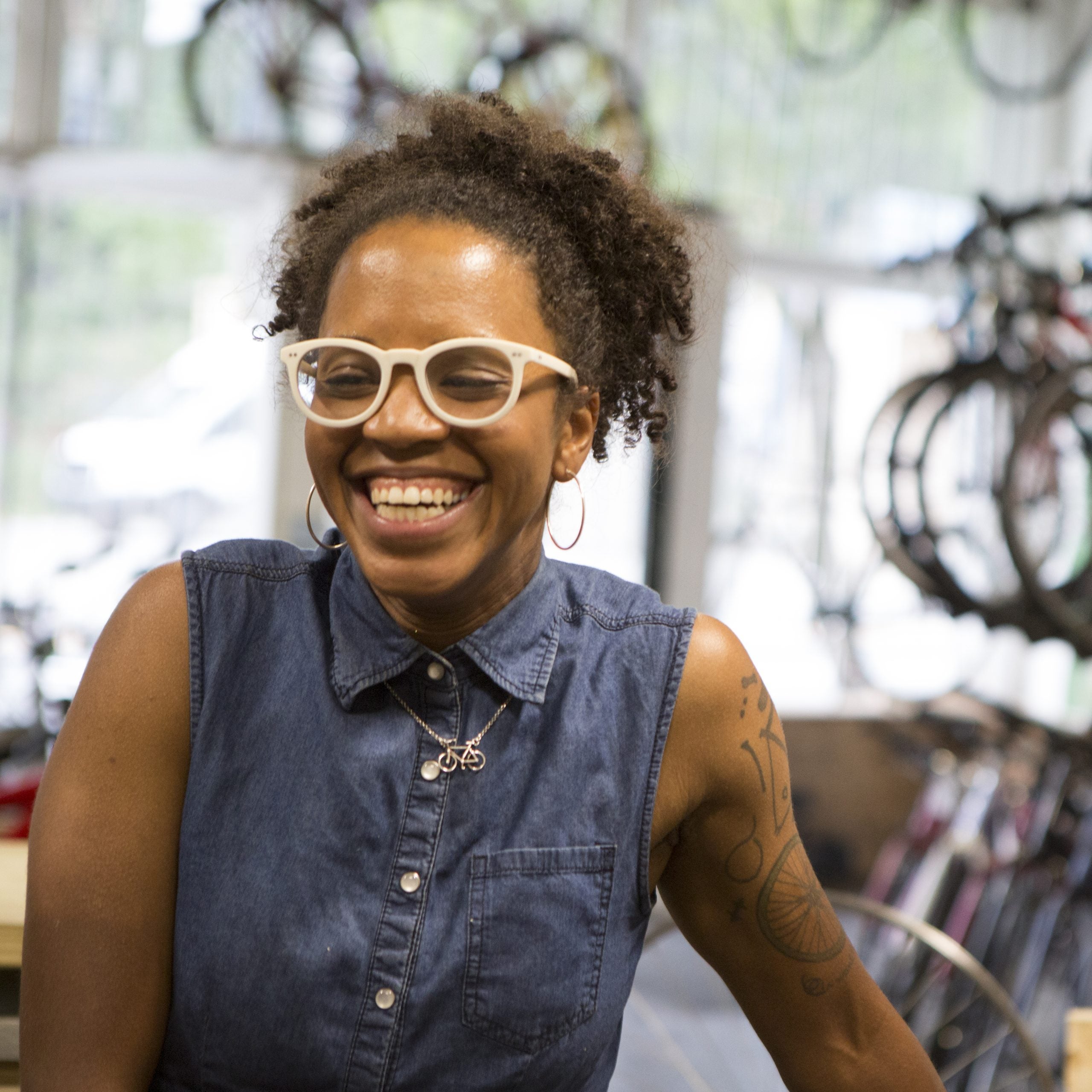At the start of nearly every road bike race she enters, Ayesha McGowan is the only black person in the field. While she’s acutely aware of this fact, it’s not what she’s focused on—at least not in that moment. All she’s concentrating on is one thing: racing.
At 31 years old, the Berklee College of Music–trained violinist is one of a handful of African American women to achieve a Category 2 (one of the highest levels) ranking in semi professional road racing, with��plans to pedal her way into becoming the first black female pro rider in a sport long known for its whiteness.
If—or, more likely, when—she succeeds, it will be a truly remarkable story, especially given how late the New Jersey native came to the sport of competitive cycling. “I started riding as an adult, as a commuter, as a way to get to school,” she says. “One thing led to another, and after moving New York City in 2010, I discovered racing.” She started doing track races, sprints, and informal alley-cat races. Then, one day in April of 2014, McGowan decided to try a road-race-slash-clinic through America’s busiest city.
She and hundreds of others lined up beneath the leafy trees in Central Park. McGowan straddled a borrowed bike near a woodpecker-occupied tree. The bird’s pecking drowned out the instructions, and she didn’t understand the strategy, but she was hooked. She bought her first bike and, a few months later, won the Category 4 New York state championships. Not long after, she officially declared her goal to become the first female African American pro cyclist, and launched a blog called to document the pursuit.
As she entered more races and moved up categories, her blog became increasingly popular and she started looking for other African Americans who’d broken into the pro ranks. They were absent, save for a couple of men, but she’s been undeterred. She’s sought out mentors, acquired sponsors, and tirelessly used her Facebook, Instagram, and YouTube channel to inspire others and give a voice to other women of color.
It hasn’t been easy, of course. Making a living racing bikes is extremely difficult, especially for women, who are paid significantly less than men as professionals. McGowan, who now lives in Atlanta and teaches music for a living, has structured her life as best she can around cycling and training, logging anywhere from 150 to 300 miles per week. She’s landed some bigger sponsors, including Cannondale, and competed in a handful of bigger races (including the North Star Grand Prix and the Redlands Bicycle Classic) solo and self-coached, which only makes her task harder in a sport where sophisticated coaching techniques and highly choreographed teamwork are major keys to success.
While McGowan remains laser-focused on winning, and becoming the first black female pro road rider, doing so is part of a larger, even more ambitious goal: to get more people of color riding and racing bikes—and playing and competing in the outdoors more generally. McGowan knows that the biggest challenge isn’t that cycling and the outdoor industry aren’t welcoming places; it’s that there are often more barriers for black kids, not the least of which is perception.
Which is why she’s driven to keep racing, blogging, and filling up her social media channels with inspiring images and helpful advice. She knows that change won’t happen overnight, and that there are still many obstacles to overcome. But she’s never backed down from a challenge, and she’s not about to start.
Ayesha McGowan’s��inspirational story is the third of four to be featured in our partnership series with��. Our first story featured pro surfer turned humanitarian��Jon Rose, and our second featured adventure photographer��Chris Burkard. Come back soon for more stories about exceptional adventurers and their journeys to redefine freedom.

